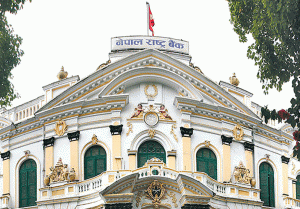
Op-ed editors of broadsheet dailies published in Kathmandu have chosen a host of issues on their Friday edition. Issues such as the standoff between Indian and China, the AIIB’s interest in investing in Nepal and the role of newly elected civic body representatives have been explored by opinion makers in the press on Friday.
The Doklam standoff

The day’s edition of Kantipur has given prominence to the standoff between neighbours China and India on its op-ed pages. Two pieces have been published on the issue, one by Dhruba Kumar and the other by Balram Paudyal of the Bhutan People’s Party.
In his piece, Kumar says that both India and China stand to lose a lot now if they withdraw troops from the disputed area. It is impossible for China to back out now, and if India backs out, it is at risk of sending the wrong message to Bhutan. He says that India does not have the bargaining chip to make China come to the negotiating table on New Delhi’s terms. However, both sides have been very cautious not to escalate the situation.
Kumar adds that the Indian leadership needs to take a leaf from Indira Gandhi, who was determined to improve ties with China. He argues that both China and India are run by leaders who chose to stay quiet on important issues, and this is not helping the resolution of the standoff. He says that China wants to understand what Modi is thinking as it prepares to host the BRICS summit in September. He refers to a recent speech by the Indian Foreign Secretary saying that in a world that is in confusion, Indo-China ties have given a basis of stability for the whole world, and it would not be right to escalate tensions between the two countries. Kumar argues that the FS’ statement must have been approved by Modi himself and those must be Modi’s lines.
He ends the piece with reference to a news article which says that the Indian government recently intervened in a multi-billion dollar deal between between two Indian and Chinese pharmaceutical companies. The Doklam standoff may have been the reason, he concludes.
The second piece on the issue by Balram Paudyal argues that there is no need for a ‘third party’ in Bhutan. He claims that the area where the standoff is taking place belongs to Bhutan. He traces the history of Sino-Bhutan border dispute to say that it has cost Bhutan (believed to have spread over 46.5 sq km), 6,000 sq km of its territory. He says that just because Bhutan has not made loud noise on the issue, it doesn’t mean that a third party is needed to advocate for Bhutan. He says the solution of the problem should be found by Bhutan and China.
AIIB’s interest in investing in Nepal

Nishchal Dhungel and Sajal Mani Dhital in their piece for The Kathmandu Post say that the AIIB, a new multi-lateral financial institution proposed by China, has vowed to invest in multiple infrastructure projects in Nepal and Nepal should utilise this opportunity. They say that the AIIB plans to finance two energy projects (Babai and Tamakoshi) and urban infrastructure projects in 18 municipalities in the Terai. The AIIB’s investment in Nepal will encourage other investors as well to come to Nepal. The authors say that Nepal needs to be cautious when it tries to increase engagement with China, keeping the ties with India and China in balance is what the country needs, they add.
Role of local level leaders

Surya Prasad Shrestha in his piece for Annapurna Post says local representatives of the people should work with a long-term vision. The need to win the hearts of the people by being responsible and accountable. They should not just think about their own political party.
























